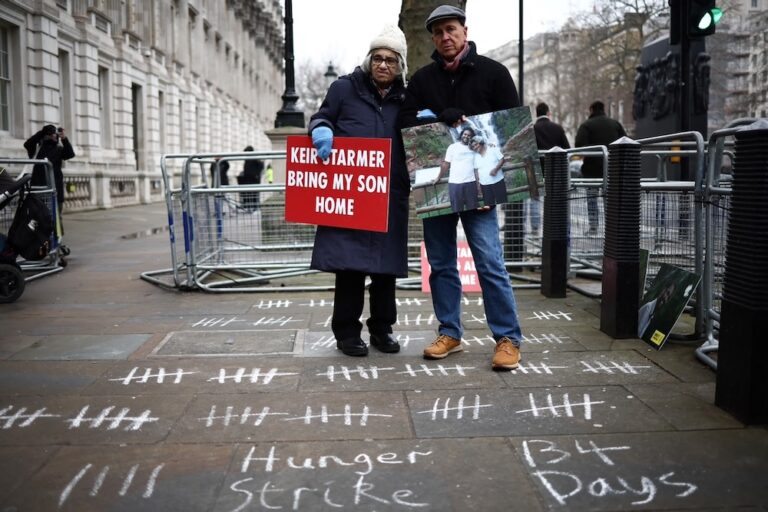Military authorities have detained an Egyptian journalist and accused him of publishing false information on military operations.
The Arabic Network for Human Rights Information (ANHRI) condemns the current Egyptian authorities for increasing their use of the Emergency Law, which was declared mid-August concurrently with the dispersal of the two sit-ins of deposed president Mohamed Morsi’s supporters in Rabaa El-Adawiya and Nahdet Misr squares. The authorities claimed that their use of the law is to confront violence, but they have also been using it to prosecute dissidents and journalists.
On 5 September 2013, the Egyptian authorities arrested lawyer and political activist Haitham Mohmadein, a member of the political bureau of the Revolutionary Socialist Movement (RevSoc), at a checkpoint in District 109 on Suez Road. Mohmadein was going to Suez in order to show solidarity with the workers of Suez Cement Co., who were protesting against the board’s arbitrary measures violating their rights.
The activist was holding the socialist newspaper issued by RevSoc when a police officer stationed at the checkpoint arbitrarily arrested him and referred him to the Faisal police station in Suez. He was detained over false accusations including “insulting a police officer” and “belonging to an underground group”. He is expected to be referred to the prosecution soon. [Haitham Mohmadein has since been released.]
On 4 September 2013, Egyptian military forces detained the prominent journalist Ahmed Abu Deraa, who won the Samir Kassir Award for Freedom of the Press. Abu Deraa, a reporter for Al-Masry Al-Youm newspaper, ONTV and a number of international media outlets, was detained on account of his coverage in Sina of the shelling of two villages, Altoma and Mokataa, by the military forces. The journalist was referred to the military prosecution in Ismailia where he was accused of “publishing false news” about the Egyptian army, and jailed for 15 days pending investigation.
“The Egyptian authorities, particularly the Egyptian army and security forces, are repeating the mistakes of the first transitional period in an effort to exclude those who oppose the use of extraordinary measures to gag activists and journalists. The arrests of both the lawyer and the journalist signify the false allegations of the Egyptian state that exceptional measures are taken only to face terrorism and violence,” said ANHRI.
“The measures being taken by the authorities warn of the return of the security state based on repression. They may serve as a setback for the principles of the Egyptian revolution. Also it may complicate matters in Egypt, subjecting the transitional period to dark times and threatening all procedures and legislations decided upon during that period,” added ANHRI.
The organization calls on the Egyptian authorities to allow for the freedom of political will to exist for the democratic transition in Egypt to succeed, and to stop all the extraordinary measures that are being misused against the opposition. ANHRI also calls for the release of journalist Ahmed Abu Deraa.


